Hello and happy Saturday. I look forward to writing this missive nearly every week. I’m proud to share the great work my colleagues do, and it gives me a chance to connect with our readers. So I hope you can forgive my lack of enthusiasm today. The big story this week wasn’t a landmark piece of legislation or a development in the Ukraine war. Nope, the topic that hogged the most headlines and airtime was the Trump administration’s handling of the Jeffrey Epstein files.
President Donald Trump said multiple times during his 2024 campaign that he would release documents related to Epstein, who died in prison in 2019 while awaiting trial on federal sex-trafficking charges. And in February, the Department of Justice did release some files—Trump brought a group of MAGA influencers to the White House, where they posed for photos while holding up binders labeled “The Epstein Files: Phase 1.” But the contents were underwhelming. Fast forward to earlier this month. On July 7, the Department of Justice released a memo stating that it had no evidence of an Epstein client list and that the FBI had concluded that Epstein died by suicide in his prison cell.
Many Trump supporters were outraged, and suddenly many on the left were clamoring for the files to be released, suspecting that Trump, who had been friends with Epstein for years, was covering something up. And Trump himself has kept trying to change the subject. Michael Warren notes that Trump snapped at a reporter for asking about Epstein and asked his followers to move on in a Truth Social post. Warren writes:
You can understand the whiplash felt by those who, like believers in the QAnon conspiracy before it, expected Trump to finally unveil what many had convinced themselves existed: proof that many of the country’s most powerful people were secretly pedophiles. But the DOJ memo did more than just pour cold water on this idea—it reinforced the idea that the conspiracy continues and perhaps Trump himself is a conspirator.
Jonah Goldberg wondered whether the kerfuffle would cause a significant schism in MAGA, and, well, he’s not ashamed to indulge in a little schadenfreude. “It’s difficult to muster any sympathy for the Mar-a-Lago Macbeth, as Epstein’s ghost plagues him like a sleazier Banquo,” he writes. “In fact, what is delicious about the whole spectacle is that literally no one—other than Epstein’s underage victims—is worth rooting for. Patel, Bongino, Bondi, and the denizens of MAGA media are all caught in a no-win situation: Support Trump and his ‘cover-up’ of their favorite conspiracy theory or alienate Trump by refusing to drop it.”
Trump did ask Attorney General Pam Bondi on Thursday to release “pertinent” grand jury testimony. But he also had to deal with fallout from a different drop of Epstein-related material that day. The Wall Street Journal reported that Ghislaine Maxwell, the British socialite and Epstein associate who’s serving a 20-year sentence for her role in his crimes, had compiled a book of letters from Epstein’s friends for his 50th birthday in 2003. And one of those letters, which included a lewd drawing of a woman, was from Donald Trump.
Trump has denied that the letter came from him and has sued the WSJ. But the way Nick Catoggio sees it, the story might actually end up helping Trump. The president’s supporters might be upset with him for not releasing the files, but nothing gets their ire up more than the media attacking him. Nick writes:
Numerous MAGA influencers who had been wavering on whether to side with Trump or with their conspiracy-crazed audiences on Epstein reacted with Pavlovian predictability to seeing their leader blindsided by the right’s archenemy, the liberal media. (Yes, “the liberal media” includes Rupert Murdoch’s newspaper. Any publication whose news coverage deviates from Trumpist propaganda is considered enemy turf.) Even Elon Musk, who’s been gleefully needling the president over Epstein, fell in line sheepishly. “It really doesn’t sound like something Trump would say tbh,” he tweeted about the letter,
Thanks for reading, and have a great weekend. And don’t miss all the great non-Epstein pieces I’ve highlighted below.
Trump’s impatience with Europe has been such a persistent feature of his first months in office that, on a recent trip to Europe, virtually everyone I spoke to kept asking me about it. From former heads of state at high-powered gatherings to next-door neighbors in a small Italian village, they all wanted to know what the reason for Trump’s implacable hostility towards Europe could possibly be. The answer most commonly given on the continent these days is that Trump suffers from what we might call Europhobia. In this explanation, the president simply harbors some irrational hatred of Europe. But simple and seemingly obvious though that explanation may be, the truth turns out to be more complicated. To understand the true nature of Trump’s beef with Europe—something that is important to do if we are to predict how he is likely to act in the remaining three years and six months of his presidency—it is necessary to examine more subtle factors.
In the years leading up to the American Revolution, colonial leaders enlisted several authoritative sources in their complaints against King George and the British Parliament: the Bible, the English constitution, and Enlightenment philosopher John Locke. In fact, it is not too much to say that Locke’s political outlook framed nearly all of the core arguments for American independence. … Colonial assumptions about natural rights, human equality, religious liberty, government by consent, the right of revolution: Each drew heavily from Locke’s writings, which were considered mandatory reading for educated Americans. As we’ll see, the colonists were heirs of the Lockean tradition. As a result, freedom, reason, and revelation formed a conceptual trinity in the American Revolution. The powerful alliance of these ideas helps to explain the astonishing and enduring influence of the American example.
It’s hard, talking with Georgians, to pinpoint exactly when it became clear that Georgian Dream wasn’t simply a reformist party, but one intent on changing the country’s democratic structure—even if that meant aligning with the foreign policy of Russia. But over the past several years, the party has moved to clamp down on dissent and break with the dominant national narrative of the post-Soviet era—that is, the country’s democratization, liberalization, and movement towards joining the European Union.
Best of the Rest
How the Supreme Court Is Returning Power to the People
The conservative majority has demonstrated a vital commitment to republicanism.
J.D. Vance’s Un-American Strawmen
Who should be able to claim our nation’s ideals?
The High Cost of Low Trust
Lies from the top—about immigrants, Communists, and everything in between—are making America ungovernable.
The Wellness Gospel Won’t Save You
Health has taken on a religious cast. But sometimes a snack is just a snack.
Society Needs Philanthropic Privacy
State-mandated publication of donor rolls will harm the American experiment.
The Emil Bove Vote Will Reveal If Thom Tillis Is Serious
The GOP senator who recently declared his independence from Trump is poised to help him remake the judiciary in his own image.
Conspiracy Central
And those meddling Russians.
Educating the Youth
Put your money where your speech is.
Liberalism’s Identity Crisis
‘Everything hinges on individualism.’

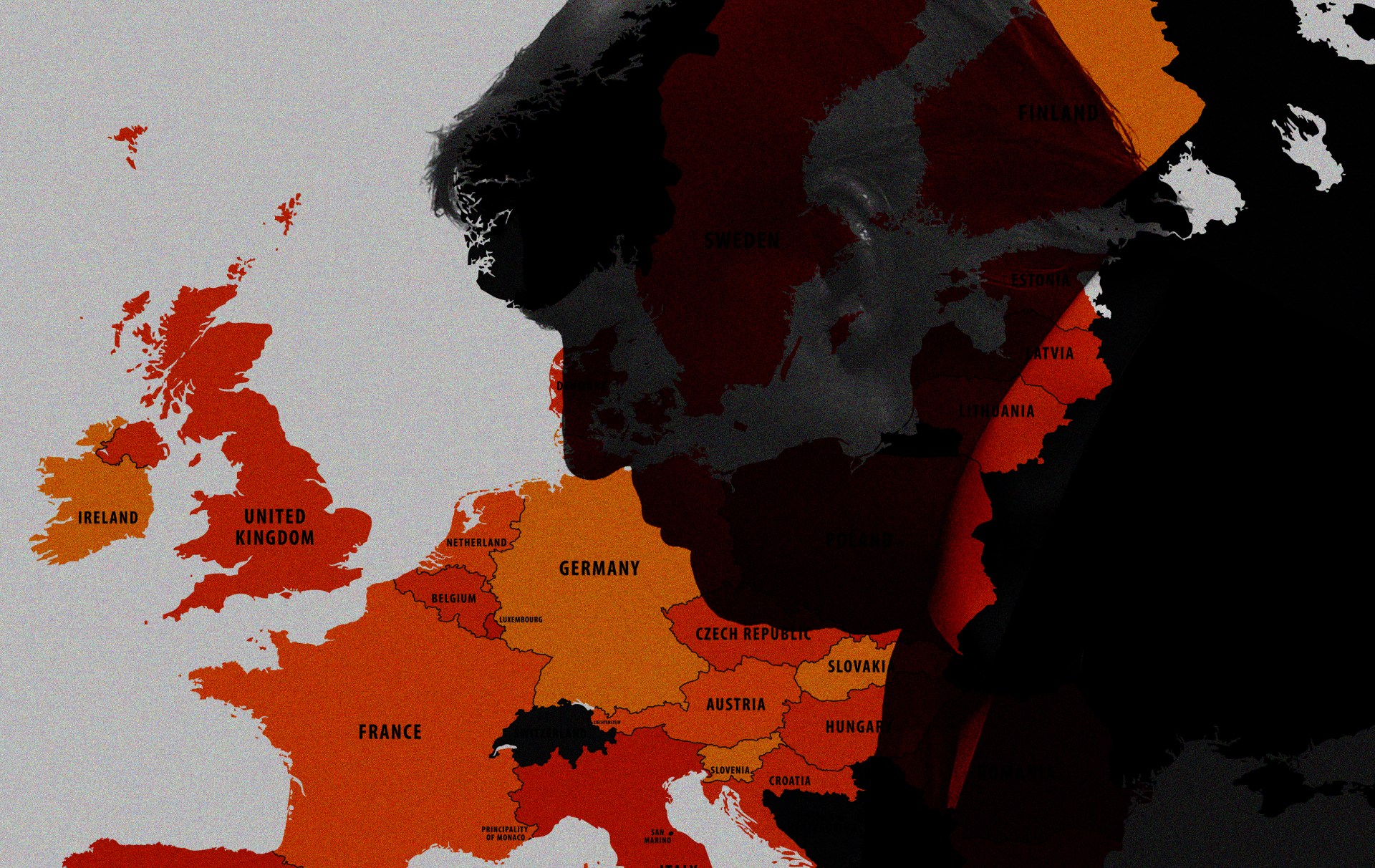


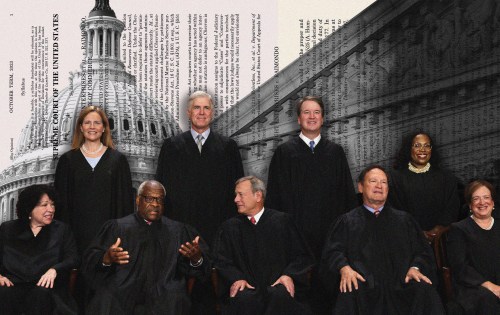




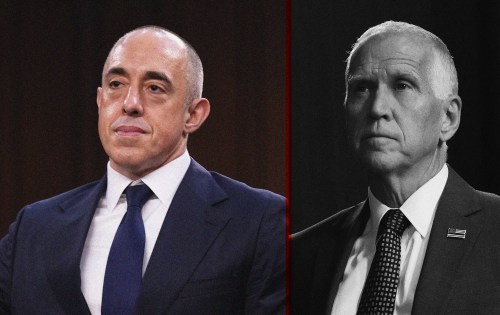
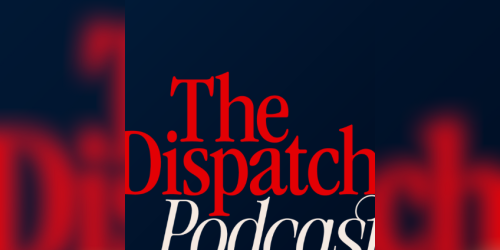
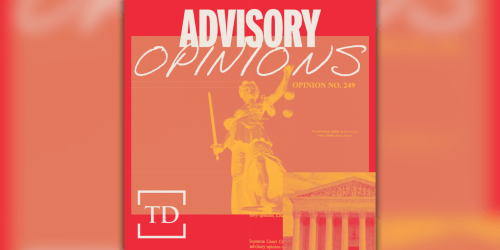
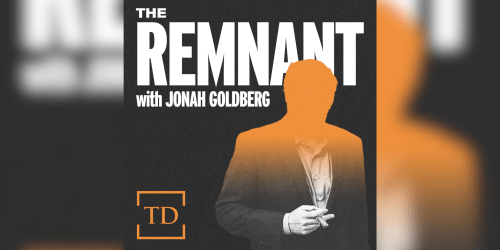



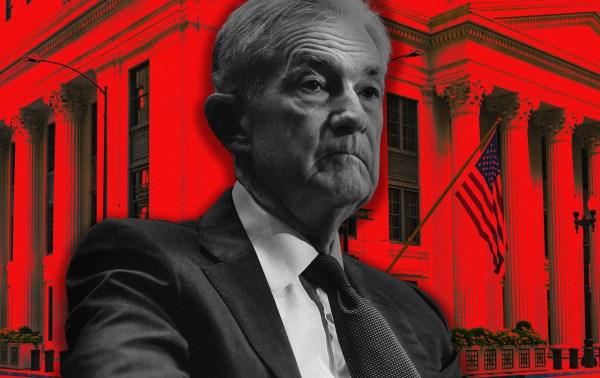


Please note that we at The Dispatch hold ourselves, our work, and our commenters to a higher standard than other places on the internet. We welcome comments that foster genuine debate or discussion—including comments critical of us or our work—but responses that include ad hominem attacks on fellow Dispatch members or are intended to stoke fear and anger may be moderated.
With your membership, you only have the ability to comment on The Morning Dispatch articles. Consider upgrading to join the conversation everywhere.